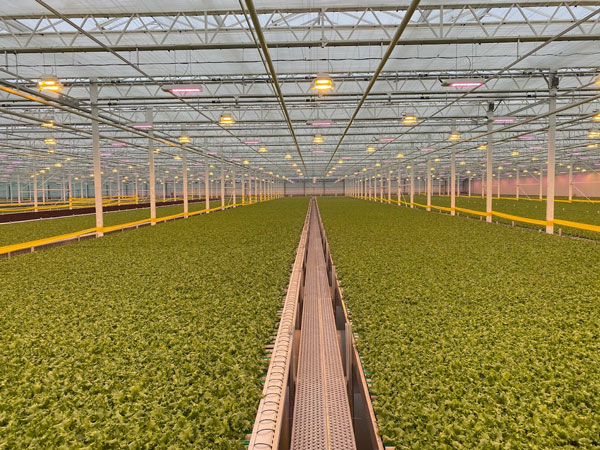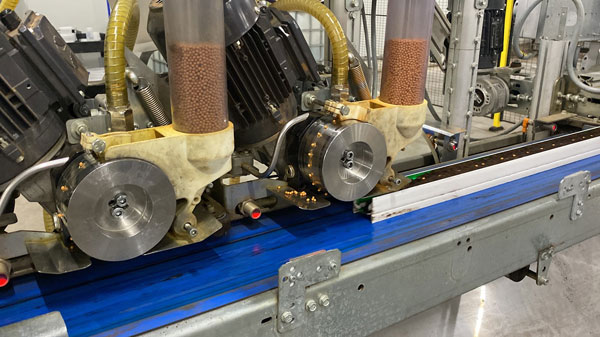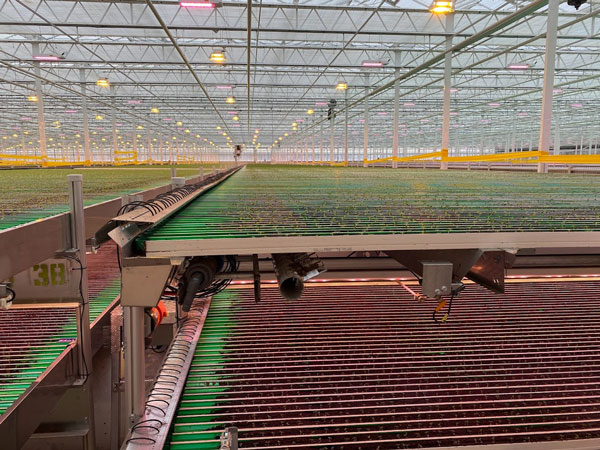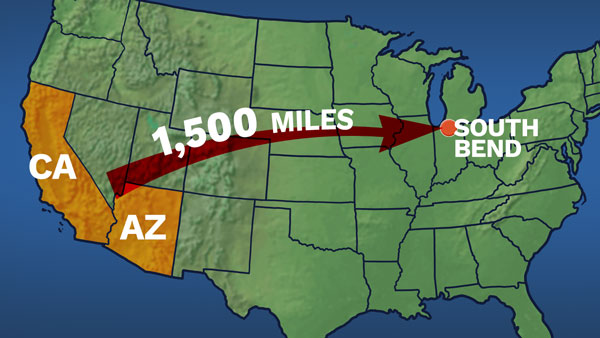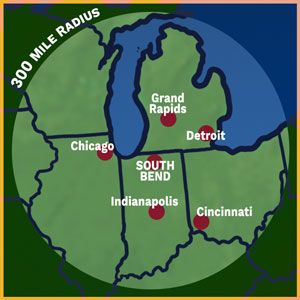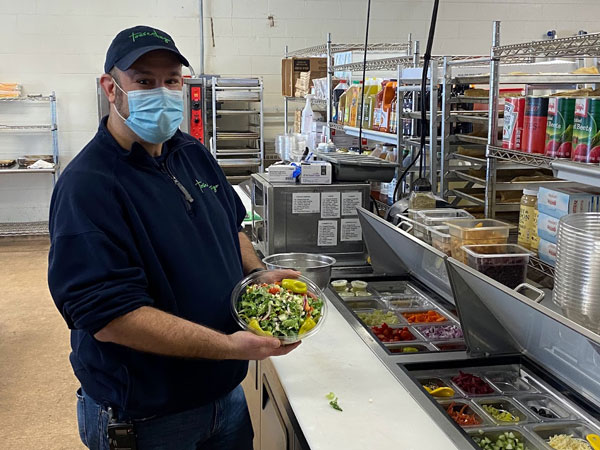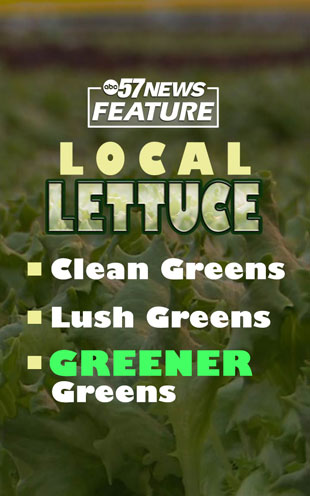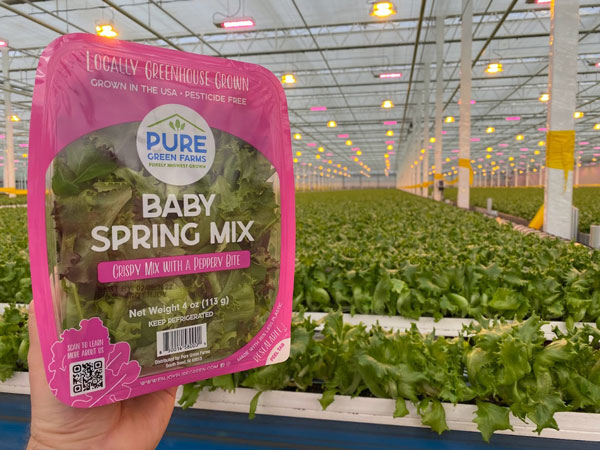Question. Do you think people should care about where the food comes from?
This is a story about what might be in your refrigerator right now -- no not the eggs, milk and bread from a recent snow storm-- but lettuce!
And these are no ordinary leaves.
They are grown locally, right here in Michiana, in the dead of winter.
Near the ethanol plant in South Bend sits the greenhouse of Pure Green Farms.
Outside it's winter, but inside it’s endless summer.
Jonathan McCullar the head grower at Pure Green Farms explains what he does.
"I'm trying to produce a climate at 72°, how about this 70° on average, so the daytime I go for 72 and it’s night time I go for 68. That’s what plants like and we wanna be able to maintain that average on a 24-hour basis," he said.
Automated agriculture, there’s no tractor, but hydraulics, conveyors, and irrigation all controlled by a computer system.
"We grow what we believe to your best in this system, and is packaged easily, it has awesome quality," McCullar said.
The seeds are sown into gutters on a conveyor belt, then it’s into the greenhouse to grow for 24 to 27 days depending on the amount of daylight. There’s a slightly longer growth cycle in winter.
"We’re able to operate on a very small piece of land. A lot of it has to do with how we utilize space. Equipment automatically moves these gutters apart. As the plants grow the gutter space out automatically. So, I will have more plants in a smaller space. And also, the water usage is a lot more efficient than traditional farming in the field," McCullar said.
95% of lettuce consumed in the U.S. Comes from California and Arizona, and is shipped thousands of miles before it ends up on your BLT.
Pure Green CEO Joe McGuire has worked in produce for over 30 years, moving from California to South Bend, to help grow his high-tech concept.
He says "We’re a farm, this is agriculture, this is what we do every day - grow plants. So, yes we are definitely a farm, but we like to look at it as just a very high tech farm. We’re using all the same principle of farming, but new technology so we can do things differently, better, more sustainable, cleaner, and obviously fresher because we’re closer, in essence we're reinventing the supply chain."
In the west, decades of drought are causing the Colorado River, and other sources of irrigation to dry up. In August, the first-ever water cuts were declared for Colorado River in historic drought.
"Yeah, I would say that the biggest attribute that’s a positive is, the fact that we have tons of water here," McGuire said.
The 3.5 acre greenhouse produces two million pounds of lettuce a year. It will be delivered within 300 miles, including Chicago, Grand Rapids, Detroit, Cincinnati, Indianapolis and right here in South Bend.
When asked if people should care about where the food comes from, McGuire says, "Absolutely, yeah absolutely. And I think we’re obviously seeing that in the media with supply chains being challenged. It’s important to know where your food comes from, and I think more importantly consumers want to know where the food comes from."
The lettuce is cut out of the trays, packaged and shipped, and ready to star in your next salad or sandwich, within 48 hours. The lettuce is sold and distributed locally to many stores and restaurants.
A short drive across town, is Tossed ToGo, where lettuce is their business. 12 of their 14 salads use Pure Green products.
"I can’t stress enough is the best lettuce I’ve used in over 30 years. I’ve been an executive chef for 30 years and it holds up to everything," said Michael Marks, Tossed ToGo co-owner.
Crisp, crunchy lettuce that stands up to any dressing, and lasts for two weeks in the fridge.
And for Tossed ToGo, the lettuce travels just five to ten miles with distribution. Far less than a cross county journey.
Marks says it’s win/win, better quality and buying local.
"We’re a local business, we’re independent, we’re not a chain, we’re not a franchise. We try to support local, wherever, local supports local, enough said."
There’s a lot that’s win-win for this kind of operation.
The consumer is the first person to touch the lettuce when they open the package.
In the past most e. Coli outbreaks were linked to surface water irrigation.
Pure Green water is pumped from the ground and treated.
A study from the National Institute of Health (NIH) found "The results confirmed that surface water can be considered a microbial hazard when used for irrigation."
Also, the water in South Bend is easy to get. The water table is about six feet underground at the Pure Green site.
The "Mega-drought" in the west isn't going anywhere, in fact it may be getting worse, according to the journal Nature - Climate Change: Rapid intensification of the emerging southwestern North American megadrought in 2020–2021.
Plus, the 300 mile travel radius, which is great for freshness but also the carbon footprint.
According to the University of Michigan, food accounts for 10-30% of a household's carbon footprint.
Production accounts for 68% of food emissions, while transportation accounts for 5%.
Local lettuce is about sustainability!
Pure Green has plans to more than double their capacity.
South Bend may be a new incubator for indoor agriculture with more greenhouses in the works.
You can buy Pure Green products in local Martin's stores. More information can be found on Pure Green's website.















